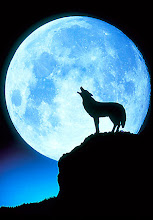 Wow, it's the end of an epic Cam 23 journey. My favourite 'things' were Flickr, LibraryThing, YouTube and Twitter. I also really enjoy using Wordle, although technically that wasn't one of the 'things'. The only one I disliked was LinkedIn, and the others all populate a happy middle ground.
Wow, it's the end of an epic Cam 23 journey. My favourite 'things' were Flickr, LibraryThing, YouTube and Twitter. I also really enjoy using Wordle, although technically that wasn't one of the 'things'. The only one I disliked was LinkedIn, and the others all populate a happy middle ground.I use many of them in my everyday life anyway, and now our library is starting to use more and more of them too. I think Web 2.0 is definitely changing libraries and it has been great to be able to learn about the different social media options available. It is important to keep on top of new developments so you can always provide a top-class service for your readers.
Thanks for this interesting and unique opportunity. That's all folks!

























